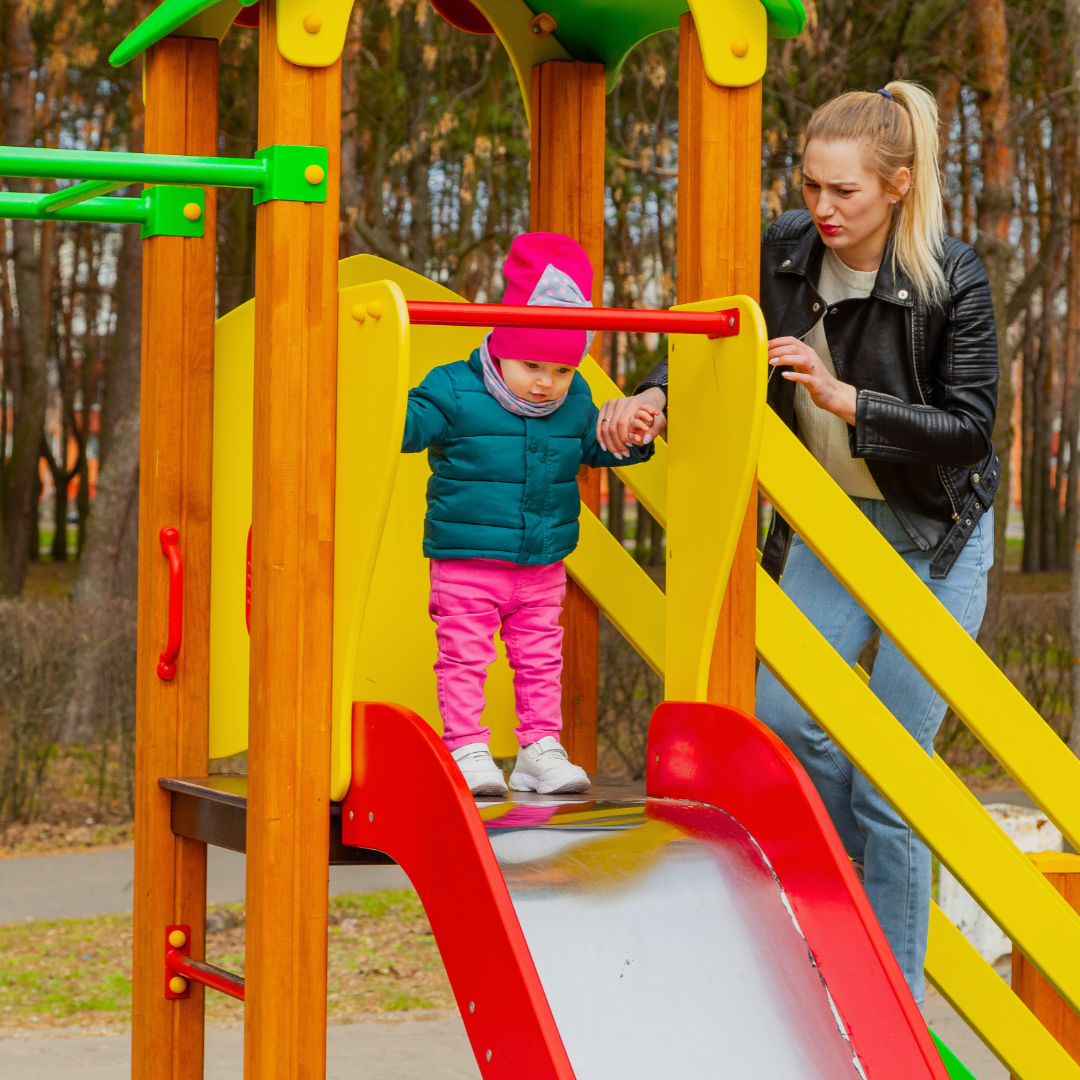
Kimberly Andrich explores our need to say “yes” to God and accept difficult circumstances in our lives with trust.
I slowly made my way out to the kids’ playset, gently lay on their slide, and closed my eyes, as my kids ran and played around me. The warmth of the slide from the sun hitting it was comforting, as were its wavy contours, which hit my back just right.
“Mom, are you OK?” one asked. I slowly shook my head. The truth was that it had taken more energy than I had felt I had to make my way out to their playset just so that I could physically be with them. My chronic fatigue and brain fog were acting up again, but I was tired of sitting on the sideline of my kids’ life.
“I’m gonna get you!” I heard from next door, followed by laughing and screaming and the sound of kids scrambling as my neighbor ran after them, then giggling from one as he scooped her in his arms.
Oh, how I wanted to be that parent, chasing after my own kids rather than lying on their slide. The difference between what I was hearing from next door and what was happening in my own backyard really highlighted for me this difference between what I wanted and my reality. It highlighted the difference between the parent I wanted to be for my kids and the parent I was.

Not wanting to move, I lay there, eyes closed. My heart felt like it was constricting within me. But my mind, tired as it was, vaguely remembered lessons I had learned and things I had practiced on easier days. Though I couldn’t fully wrap my clogged mind around it, a recognition of the need to consent to how I was feeling and to be present to it made its way to the surface.
Fr Jacques Phillipe writes about a choice we have in response to any unpleasant situation. We can choose, he says, to rebel against, resign ourselves to, or consent to the undesirable circumstance (Interior Freedom, 29-31).
To rebel is to reject the reality of a circumstance. It’s saying, “No, I will not do this! I refuse to live like this,” even as we are unable to change it. Its fruits include despair and resentment.
To resign ourselves is, in a sense, to give up, to give in to powerlessness in a way that strips us of hope. When we resign ourselves, we’re basically saying, “Fine, I guess I’ll deal with it because I have to.”
Consent, on the other hand, is more difficult to do but bears great fruit.
Consent leads to a completely different interior attitude. We say yes to a reality we initially saw as negative, because we realize that something positive may arise from it. This hints at hope. (Interior Freedom, 30)
We know that God either ordained or permitted every circumstance in our lives because He can bring good from it all. Since our loving God said yes to everything He allows or sends us with our good in mind, we can also choose to consent to everything, though what we experience may repulse us. It is in trust and with love for God that we give our “yes” back to Him. It is with hope in Him that we put ourselves in His hands.

When we rebel against or resign to an unwanted situation, we suffer both externally and internally. When we consent and give our yes to the situation from the place of a trust in and love for God, we still may suffer externally, but internally we are at peace. We no longer need to fight against the situation we find ourselves in.
Though consent changes nothing externally, it frees us to live, present to the circumstances and to the people and world around us, even in unpleasant situations. We no longer wish for something different or compare ourselves with others. We do not cling to resentment or powerlessness. We know we have what we need in God, even as our senses tell us we do not.
When we no longer need to strain against the circumstances of our lives, when we have accepted and consented to them, the concerns of the past and the future fade away, and we are free to focus on the here and now. And it is in the present, at each and every moment, that God touches our lives and comes to be with us, including in our pain.

Having a sense of all of this, there on that slide, I gave my “yes” to God, though what I wanted was to feel better. I allowed myself to lie there, exhausted, and appreciate the warmth of the slide and the sun and the laughter of my children as they ran around me. I said “yes” to living this life, to being this parent, to loving my children and loving God from where I was rather than from where I wanted to be. And, though I continued to feel exhausted physically, internally I was at peace.
Share your thoughts with the Catholic Mom community! You'll find the comment box below the author's bio and list of recommended articles.
Copyright 2024 Kimberly Andrich
Images: Canva
About the Author

Kimberly Andrich
Kimberly Andrich is a wife and a mother of 5, to two big boys and three little ladies. She enjoys deep conversations over a cup of hot tea and twilight walks with her husband. Kimberly writes from the perspective of having a hidden, chronic illness and experiencing a deep, continuous conversion through being yoked to Jesus in the day-to-day trials and joys of life. Follow her on Instagram @FallingOnHisGrace.


.png?width=1806&height=731&name=CatholicMom_hcfm_logo1_pos_871c_2728c%20(002).png)
Comments